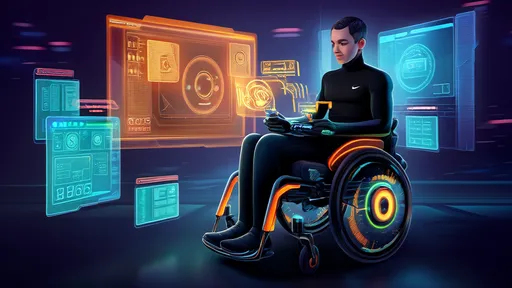The intersection of quantum physics and gaming may sound like science fiction, but recent advancements suggest it could become a reality sooner than expected. Quantum encryption, long considered the holy grail of secure communication, is now being explored as a potential game-changer in the fight against cheating in online gaming. As competitive gaming grows into a multi-billion-dollar industry, the stakes for fair play have never been higher. Could quantum encryption be the ultimate anti-cheat technology?
Cheating in online games has evolved from simple exploits to sophisticated hacking techniques that undermine the integrity of competitive play. Traditional anti-cheat systems rely on software detection, behavioral analysis, and server-side validation. While these methods have proven effective to some degree, they are not foolproof. Hackers continually find ways to bypass detection, leaving developers in a perpetual arms race. Quantum encryption, with its promise of unbreakable security, offers a tantalizing solution to this problem.
How Quantum Encryption Works in Gaming
At its core, quantum encryption leverages the principles of quantum mechanics to secure data transmission. Unlike classical encryption, which relies on mathematical complexity, quantum encryption uses the behavior of particles like photons to create cryptographic keys. Any attempt to intercept or tamper with these keys would disturb their quantum state, immediately alerting both parties to the breach. In the context of gaming, this could mean that every piece of data exchanged between a player’s device and the game server would be inherently secure.
Imagine a scenario where a player’s inputs—keystrokes, mouse movements, or controller actions—are encrypted using quantum protocols. Any unauthorized attempt to alter these inputs mid-transmission would be instantly detectable, rendering cheats like aimbots or speed hacks useless. Even more compelling is the potential for quantum-secured game states, where the server and client communicate in a way that makes tampering impossible. This level of security could effectively eliminate the most pervasive forms of cheating in online games.
The Challenges of Implementing Quantum Encryption
While the theoretical benefits are clear, the practical implementation of quantum encryption in gaming faces significant hurdles. Quantum key distribution (QKD), the most well-known form of quantum encryption, currently requires specialized hardware and operates under strict environmental conditions. Most consumer devices are not equipped to handle quantum cryptographic processes, and the infrastructure needed to support widespread adoption is still in its infancy.
Another challenge is latency. Online gaming demands real-time responsiveness, and even the slightest delay can ruin the player experience. Quantum encryption, as it stands today, introduces additional processing steps that could impact performance. Developers would need to strike a delicate balance between security and gameplay fluidity, ensuring that anti-cheat measures don’t come at the cost of user satisfaction.
The Future of Quantum-Secured Gaming
Despite these obstacles, the gaming industry is no stranger to pushing technological boundaries. Cloud gaming, virtual reality, and AI-driven experiences were once considered impractical, yet they are now mainstream. Quantum encryption could follow a similar trajectory, especially as advancements in quantum computing accelerate. Companies like IBM, Google, and startups in the quantum space are making strides in miniaturizing and commercializing quantum technologies, which could eventually trickle down to consumer applications like gaming.
Some experts speculate that hybrid systems—combining classical and quantum encryption—could serve as an intermediate step. For instance, critical game data could be secured via quantum protocols while less sensitive information relies on traditional methods. This approach would mitigate performance concerns while still providing robust anti-cheat capabilities. Over time, as quantum technology becomes more accessible, full-scale integration could become feasible.
Ethical and Competitive Implications
Beyond the technical aspects, the adoption of quantum encryption in gaming raises important ethical and competitive questions. If quantum-secured games become the norm, would they create a divide between players with access to quantum-ready hardware and those without? Ensuring fairness in this new paradigm would require industry-wide standards and potentially even regulatory oversight.
Moreover, the elimination of cheating could redefine what it means to compete in esports. Without the shadow of hacks, players and teams would be judged solely on skill, strategy, and teamwork. This purity of competition could elevate esports to new heights, attracting more sponsors, investors, and mainstream recognition. However, it could also expose other forms of unfair advantage, such as performance-enhancing drugs or hardware modifications, prompting further scrutiny.
A Quantum Leap for Gaming?
Quantum encryption represents a bold vision for the future of gaming—one where cheating is rendered obsolete by the laws of physics. While the technology is not yet ready for mass adoption, its potential is undeniable. As the gaming industry continues to innovate, the integration of quantum mechanics could mark the next frontier in competitive integrity.
For now, developers and researchers must collaborate to overcome the technical barriers and explore practical applications. Whether quantum encryption becomes the ultimate anti-cheat solution remains to be seen, but one thing is certain: the race to secure the future of gaming has begun.

By /Jul 3, 2025

By /Jul 3, 2025

By /Jul 3, 2025

By /Jul 3, 2025

By /Jul 3, 2025

By /Jul 3, 2025

By /Jul 3, 2025

By /Jul 3, 2025

By /Jul 3, 2025

By /Jul 3, 2025

By /Jul 3, 2025

By /Jul 3, 2025

By /Jul 3, 2025

By /Jul 3, 2025

By /Jul 3, 2025

By /Jul 3, 2025

By /Jul 3, 2025

By /Jul 3, 2025